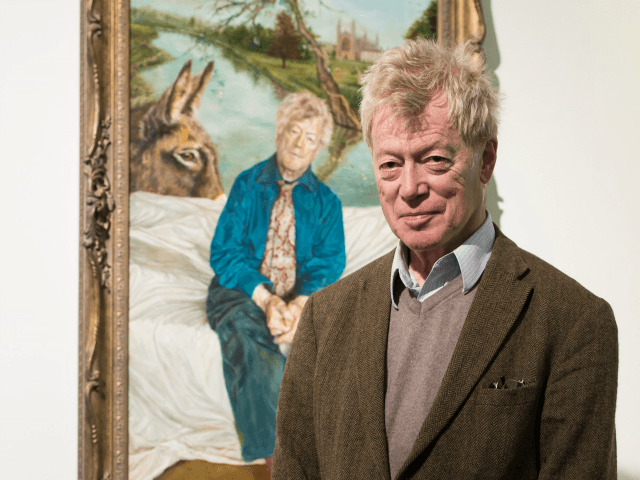He passed away from cancer.

 www.nationalreview.com
www.nationalreview.com

 www.breitbart.com
www.breitbart.com
On why he became a Conservative...
On Conservatism and Conservation...
He earned a Knighthood from the United Kingdom in 2016, medals of merit from Hungary, the Czech Republic and Poland due to his actions during the Cold War in Eastern Europe and was widely recognized for his philosophy and writings in regards to traditional conservative values, political philosophy, aesthetics in art, sexuality and many other topics. He was a very prolific author and writer with over fifty works including novels and operas.

‘You Mean a Lot to a Lot of Us’ | National Review
Notes on the late Sir Roger Scruton.

RIP Britain's Greatest Conservative Philosopher, Sir Roger Scruton
He provided the most satisfying definition of conservative values I've ever heard: 'people who love something actual and want to retain it.’
On why he became a Conservative...
Roger Scruton said:'I went to Paris after graduating, to France, and I was in Paris during 1968 and I saw what leftism really means. You know it means the destruction of that civilization that I’d come to love and, in particular in France, which was for me and object of pilgrimage, this place of high culture and wonderful literature and this history being at the heart of everything and the beautiful architecture,' he said. 'All that influenced me away from any leftist position and when it came to observing the street battles between the Maoist students and the terrified policemen, I found myself on the side of the latter.'
Roger Scruton said:What I saw was an unruly mob of self-indulgent middle-class hooligans. When I asked my friends what they wanted, what were they trying to achieve, all I got back was this ludicrous Marxist gobbledegook. I was disgusted by it, and thought there must be a way back to the defence of western civilisation against these things. That's when I became a conservative. I knew I wanted to conserve things rather than pull them down."
On Conservatism and Conservation...
Roger Scruton said:'The conservative picture, as I see it, is that we draw upon people with social motives. It’s the old Burkean idea that society is a relation of trans-trusteeship between the unborn and the dead... Much better adapted to the environmental problem than the liberal emphasis on freedom and the socialist emphasis on state control.'
He earned a Knighthood from the United Kingdom in 2016, medals of merit from Hungary, the Czech Republic and Poland due to his actions during the Cold War in Eastern Europe and was widely recognized for his philosophy and writings in regards to traditional conservative values, political philosophy, aesthetics in art, sexuality and many other topics. He was a very prolific author and writer with over fifty works including novels and operas.
Last edited:



